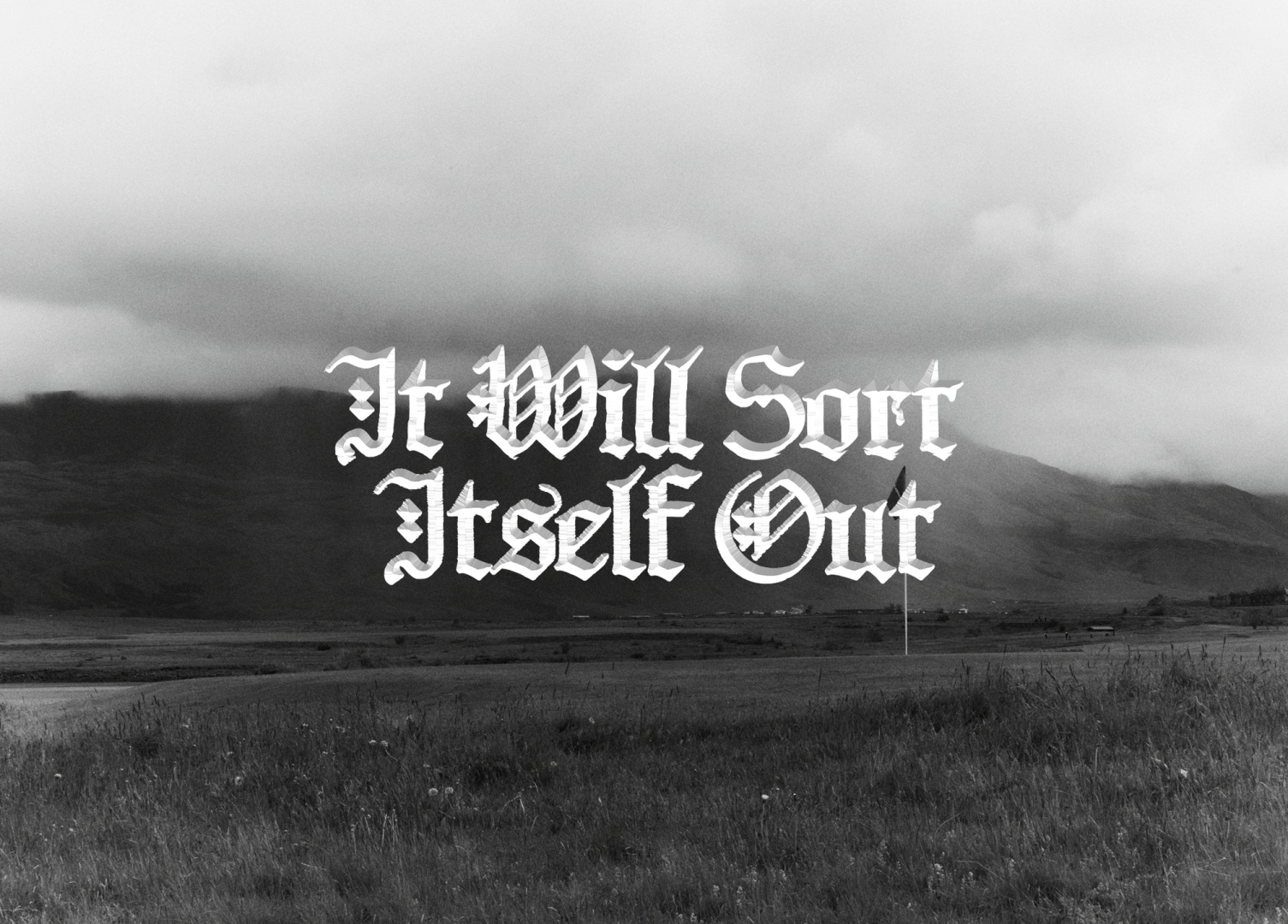
It Will Sort Itself Out
Typically, it’s expectation that weighs a golf trip down the most. We pack with us the promise of impossibly crisp fairways and somersaulting divots. Alongside spikes and irons are the hours of research and, heaviest of all, hope. That we play well. That the quality of the courses matches or exceeds the difficulty of negotiations with our loved ones. That the years spent obsessing over a game we’re probably no good at will be justified by the almighty golf trip.
On this occasion, I was 10 kg overweight for a different reason. I’d forgotten my travel case and was trying to shove a second golf bag into James’s. The lovely blonde lady at check-in was having none of it. I headed to the luggage store to pay the idiot tax on a wildly overpriced travel case, and we were off to Iceland.
Why would anyone head to Iceland with high hopes for golf? It’s not a golf destination. Tourists come for the scalding hot water that explodes from the earth’s core, and the frozen ice glittering in the north. Iceland dazzles and distracts like a magician with so many sliding hands. But we weren’t easily fooled. We knew that amidst the black sand and towering rocks, there would be neat strips of green.
Like many of Iceland’s lesser-known treasures, golf is no secret to the locals. Weary of cascading waterfalls and tectonic plates, Icelanders have taken up the sport with zeal. In fact, nowhere in the world boasts more golf courses per capita. For every hole in Iceland, there are just 470 inhabitants. Getting a tee time was not easy.
With 4,000 members, a five-year waiting list, state-of-the-art practice facilities, and 54 stunning holes that span from coastal links to stream lined parkland, Reykjavik Golf Club is the beating heart of the capital’s golf scene. The fairways remain packed from 7 a.m. until sunset at midnight.
If I had any expectation for Icelandic golf, it was that it would be beautiful—staggering, even—but would ultimately fall short of that ill-defined cliché: a “proper test of golf.” I’ll admit, I’m the kind of golfer who’s happy to forgive awkward routing and the occasional suspect hole if the views are worth it. But the courses here don’t resort to gimmicks. These courses are run by members, for members. Locals who encounter cliffs, mountains, and rivers before breakfast won’t accept an unfair challenge for the price of an apple screensaver. They use the landscape to their advantage, but not as a crutch.
The quirkiest we played was the front nine at Keilir Golf Club, but not because of the routing. One mistimed swing at Keilir will send your ball hurtling toward black volcanic rocks that surround the fairways on all sides. It reminded me of that game we played as kids: throwing pillows down onto the living room floor and imagining that if you fell off, you’d drown in lava. Only this time, the volcanic penalty was more severe.
When we found the molten rock, we were forced to watch as the ball took several cart-path-like leaps from one hard surface to another. Eventually, it settled, scuffed and warped. On our mission to retrieve it, nesting Arctic terns swooped down and attacked. As good a reminder as any to stay on the fairway.
That a course in Iceland, where the ideal 20-degree temperature for grass growth occurs only a handful of times a year, could provide such an uncanny impression of Scottish links is a testament to the ingenuity of its custodians. At Keilir, the grounds crew siphon excess hot water from the local aluminium plant to protect the fairways and greens during colder months. It’s an extraordinary innovation, reflective of the Icelandic will to collaborate, adapt and overcome.
You get the sense that no task is too big or too small for the calm, unflappable people who live here. Throughout our travels, my anxiety over tee times, dinner bookings, and minor changes to the plan was consistently met with a single phrase: “Þetta reddast” (pronounced thet-ta red-ast). Loosely translated, it means “It’ll sort itself out.” More than a motto, it’s an Icelandic reflex. A collective shrug developed over centuries of bitter winters, scarce resources, and the occasional erupting volcano. Þetta reddast is optimistic fatalism at its finest, a national riposte to hardship itself.